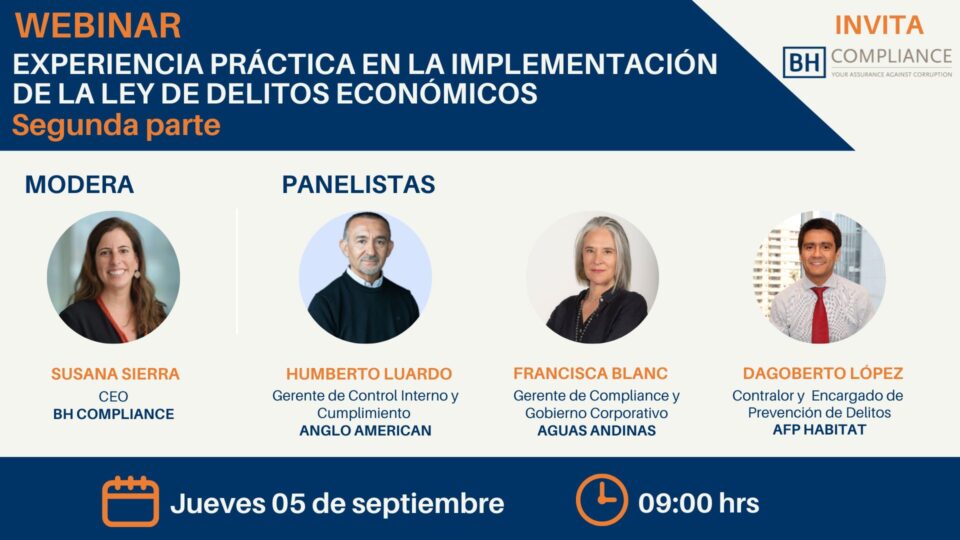
After the success of the webinar “Practical experience in the implementation of the Economic Crimes Law”, BH Compliance held a second part in order to continue learning how important companies are addressing the new requirements of the Economic Crimes Law that came into force last September 1.
On this occasion, the panel was composed of Francisca Blanc, Compliance and Corporate Governance Manager of Aguas Andinas; Humberto Luardo, Internal Control and Compliance Manager of Anglo American; Dagoberto López, Controller and Crime Prevention Officer of AFP Habitat, and Susana Sierra, CEO of BH Compliance, who moderated the event.
Humberto Luardo began the presentations by sharing the experience of the process Anglo American undertook to comply with the regulations, highlighting five main areas of work: (1) identification, (2) categorization and (3) qualification of risks, (4) mitigation measures, and (5) review and reassessment of these. He also emphasized that this work was done by a multidisciplinary team from all areas of the company.
Francisca Blanc explained how Aguas Andinas updated and implemented its Crime Prevention Model in accordance with the Economic Crimes Law, reviewing (1) the effective implementation of crimes that apply to the company; (2) a criminal prevention policy; (3) a risk matrix, identifying processes, associated risks, establishing controls and creating action plans; (4) ongoing training and (5) effective communication.
Finally, Dagoberto López provided a context for the AFP business and then explained how Habitat has worked on adapting its Crime Prevention Model. In this regard, he said that they did a previous exercise based on computer crimes, which was very useful to then do it in a general way. Their process was as follows: (1) training the board of directors and management; (2) relying on advisors in criminal law; (3) reviewing in detail their processes versus the crimes applicable to them; (4) creating their risk matrix; (5) training the entire company e-learning and in person; (6) certifying and (7) monitoring their processes.
Thus, through companies from different industries, they provided the audience with their practical experience to comply with the Economic Crimes Act and thus provide a guide to companies that are still in the process of adapting their compliance programs and comply with the new requirements.










